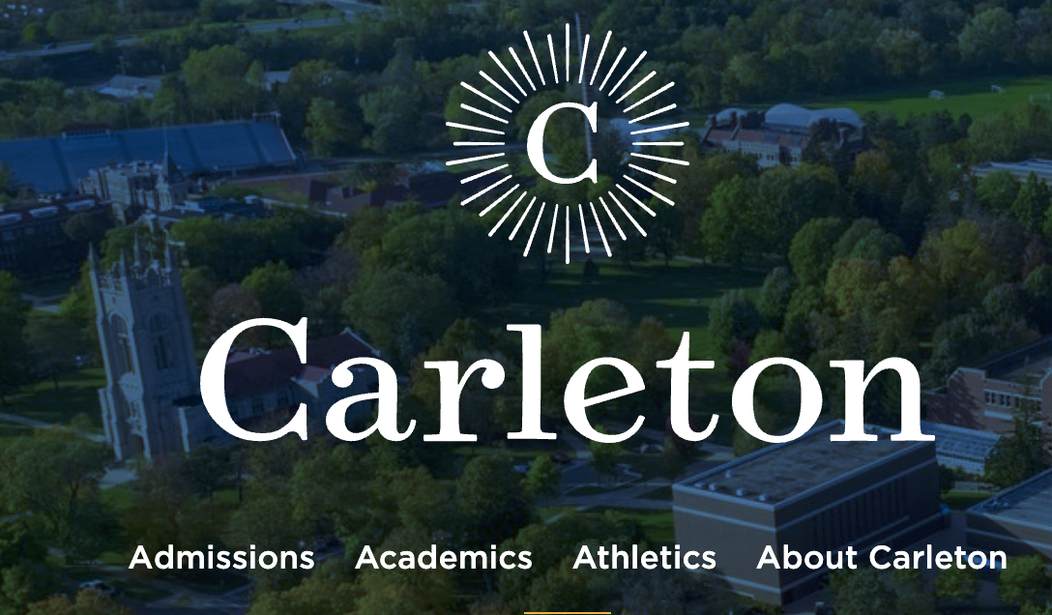I am hardly the first or the only person to note the fact that social justice ideology is simply a religious replacement for Christianity. It has a doctrine, evangelists, and claims to provide a higher meaning to life.
But my Alma Mater, Carleton College, surprised even me by hiring as its new Chaplain of the college an avowed atheist. They aren’t even pretending anymore.
Schuyler Vogel seems like a truly nice guy. A graduate of the college himself he is surely thrilled to be back on campus to spread the gospel of progressivism, and given how hostile modern academia is to traditional religion it is hard for me to actually get outraged by the college’s indifference to hiring a religious person to be its new chaplain.
What is one more SJW on a campus full of them? Could things be any worse than they were already? Hardly.
Based in Skinner Memorial Chapel and overseeing chaplains from Christian, Jewish, and Muslim traditions, he’ll be focused on both the contemplative life of campus and the more outward manifestations of spirituality, including social justice advocacy.
Carleton was originally founded as a Congregationalist institution and its first major funding was raised on that basis. That tradition didn’t last long, though.
Considered one of the best liberal arts colleges in America I have to say that its very liberal bent did not, during my time in the 80s, mean that it was a hostile environment for dissent. It wasn’t. Conservatives were seen as oddities, not a hostile force to be destroyed. That may even still be the case, although it has been years since my time there even as an instructor back in the 90s.
Whatever the case, it is striking how far from its original mission the college has drifted, and emblematic of how far academia has drifted from it. The liberals arts are a product of the West, and the new religion is explicitly anti-Western.
I love the Christian tradition, its rituals, its stories, its sense of justice, but I don’t believe in its core theological assumptions. Eventually I returned to Unitarian Universalism, where I was ordained as a minister. I probably don’t believe in God, although I believe that we human beings have a moral calling to serve love and justice.
Without God, what is justice? I know that many people who do not believe in God still have a sense of justice, but for the most part, that sense is informed by a Christian tradition that they are actively attacking. Equality as a good is a particularly Christian concept, and based on the belief that whatever our individual differences we are all creatures of God. Without that grounding the belief that all human beings are equal is incoherent because in purely earthly terms we are clearly not.
Equality on earth is a literal impossibility, and the actual practice of social justice warriors demonstrates that every day. We are bombarded by claims of hierarchy–racial essentialism, intersectionalism, historical guilt–that only get stronger every year. Socialist and communist societies make extraordinary claims regarding their egalitarianism, but in reality, are among the most repressive and hierarchical modern societies.
Vogel’s own religious background likely accounts for his airy niceness–Unitarian Universalism and Presbyterianism traditions from his childhood clearly inform his current beliefs. I am quite sure I would like him, and that he is a morally serious chap. I am also quite certain that in a few decades, he will be surprised to see how liberation from Christian theology leads to liberation from morality.
If I sound like I believe that Christians are virtuous and atheists cannot be let me assure you that I do not. Individually Christians can and often don’t behave in a Christian manner, and atheists can and often are quite moral in a way that Christians should be.
Societally, though, the actual increase in “social justice” has been a Christian project driven by Christian morality. I, for one, do not believe that it is accidental that the global movement for human rights began in the West. Nor do I believe that it is accidental that it was a Reverand, Dr. King, who was instrumental in awakening the conscience of Americans to the evils of racism.
Perhaps I am making too much of this, given my attachment to Carleton and my relatively recent attachment to Christianity. But I don’t think so.
Common sense, after all, suggests that at the very least a Chaplain shouldn’t be an atheist.







Join the conversation as a VIP Member